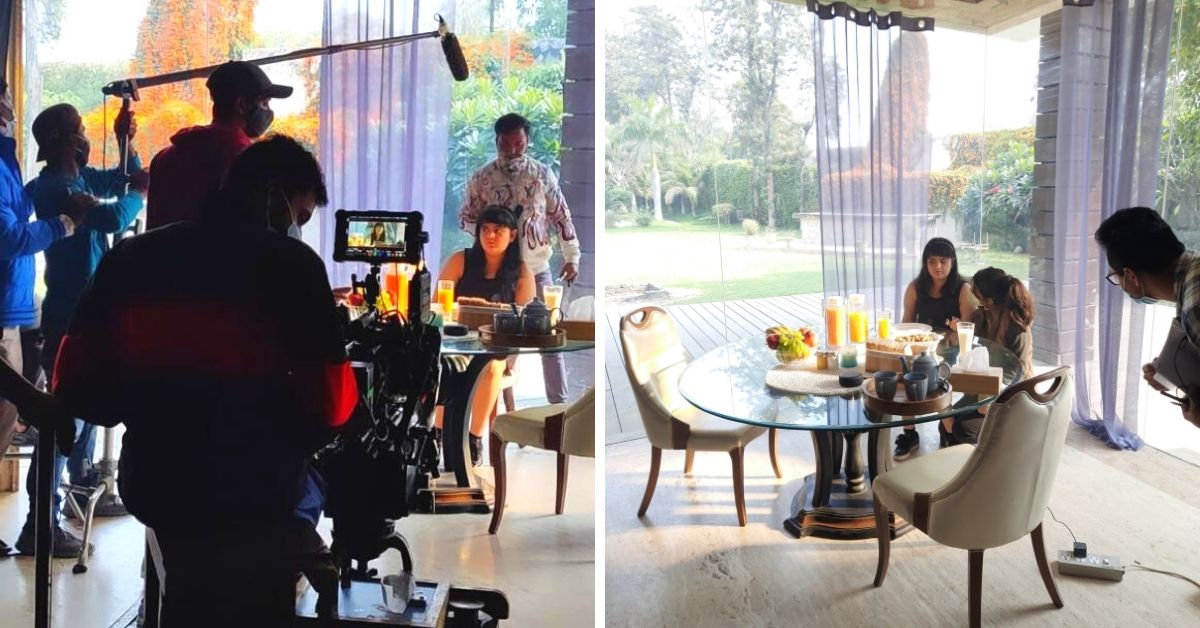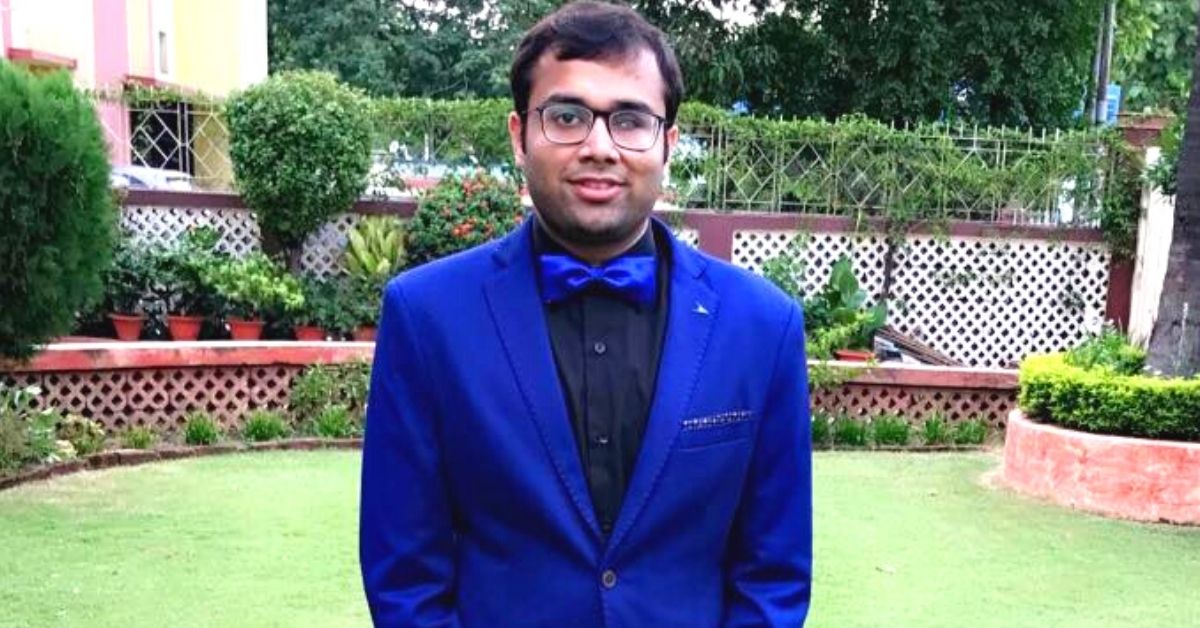Just as India had started clawing its way back from the COVID-19 lockdown and the dramatic effects of the pandemic, another wave seems to have entered the picture. Coronavirus cases are on the rise (Maharashtra recorded 11k cases on April 4), which may once again put the job industry in jeopardy. Work from home is not a viable solution for those working in sectors including retail and hospitality.
Last year, companies had laid off people who were either the least senior workers, or ones whose absence wouldn’t make a difference. Unfortunately, among those were people with disabilities.
Even before the pandemic, differently abled people first struggled to integrate into a still-developing disability-inclusive work culture. Then, they had to work to establish that they were much more than charity hiring. However, with the pandemic induced layoffs, they are back to square one in terms of finding the right job.
Reentering the job market or switching fields to find work is not easy, especially in this scenario. This can have severe consequences — loss of confidence, insecurities about their own skills and, of course, financial suffering.
While there is no nationwide data on the unemployment rate among the disabled, a National Centre for Promotion of Employment for Disabled study, ‘Locked Down and Left Behind’, on 1,067 individuals with disabilities states that 57% struggled financially due to job loss.
Realising this, Jamshedpur-based Vineet Saraiwala launched an online job portal, Atypical, in December 2020 to help recruiters find job-seekers with disabilities based purely on merit. It also has a section wherein products made by the disabled are sold. Vineet fully understands the far-reaching effects of disability, as he himself has Retinitis Pigmentosa (RP), a rare genetic disorder that causes loss of vision due to a breakdown or loss of retina cells. You can read about him more here.
Connecting job-seekers with recruiters

“I have worked in the retail sector long enough to understand career-related problems of people with disabilities. When the pandemic hit, several people from the disabled community reached out for help on social media platforms and WhatsApp groups. I can help 4-5 people alone, but the magnitude of such people was high, for which I would need institutional level support. The concept of work-from-home further amplified the problem, as training or monitoring the disabled became more worrisome. I wanted to go beyond charity and create a long-term sustainable model. Through Atypical, job-seekers can post their profiles instead of relying solely on someone’s goodwill,” Vineet tells The Better India.
Vineet wanted to do this right, he says. His aim was to bring out stories of every person in detail, while focussing on their credentials. Finding talent was not as challenging as giving justice to their profiles. With help from volunteers from across India, Vineet spoke to the disabled and their families at length to prepare their biodatas.
Next, he used social media and a strong network of NGOs working in the arena across India to spread the word. The tedious process lasted for nearly nine months.
“From getting a decent photo to translating biodatas written in vernacular languages and bridging the communication gap, we did everything on the phone. By the time we launched, there were 200 job seekers listed on our website, and the number has now risen to 400. There are 20 categories or industries listed on the portal, including singing, dancing, photography, sign language interpreters, physiotherapy, magic and so on,” adds Vineet.
Meanwhile, recruiters also came in decent numbers, and on the first day of the launch, Biswajeet, a visually impaired masseuse, was placed. He bagged a freelancing therapy session in Mumbai after months into the lockdown.
Recruiters are mandated to put their information and once the job-seeker gives a nod, the website connects them, thus ensuring data safety. If the person is nervous or uncomfortable talking with the recruiters, Vineet and his team act as mediators. Sometimes, they even help job seekers find a better salary package, like in the case of hearing-impaired Sheetal from Nagpur. She bagged a magic show for Tokyo Edelweiss for which she quoted Rs 500 for a 10-minute gig. However, Vineet made her realise her worth and closed the deal at Rs 4,000.
Finding dream jobs
Pranav Bakhshi, an autistic graphic designer from Delhi, was hired by a London-based company for a graphic designing project. More than the money, it was a compliment from the employer regarding the final output that gave Pranav the confidence to move on to his next project.
“A simple statement of validation can mean the world for my son,” says Anupama, Pranav’s mother, “Atypical is a well-orchestrated website that purely functions on an individual’s merit. So Pranav knows that it was his exceptional design skills that got him the job.” Pranav later got an internship at Thomson Reuters.
For Tarini Chhada, Atypical has opened a new avenue as well. The 15-year-old girl with a learning disability was hired by Amazon as a model for a digital advertisement on Alexa.
“By the time children enter their twenties, they have a fair idea about their career paths. This is not always the case for children with disabilities, due to several reasons including lack of opportunities. But at 15, Tarini was given a chance to explore a modelling gig. She loved being in front of the cameras and post the shoot, she has been able to identify ads on TV. We heard about Vineet’s initiative through social media and gave it a shot, and now Tarini might have just found a definitive career option,” Aastha, Tarini’s mother tells The Better India.
Meanwhile, visually-impaired Alfia, a physiotherapist, started getting patients in her clinic in Ratlam.
In the art field too, several disabled job seekers are leaving their mark. Ajay Jayprakash, an amputee from Kerala, was able to sell 20 of his upside-down portraits. Likewise, Payal Shrishumal, who has Muscular Dystrophy, was able to generate livelihood from coffee portraits. Karishma, a painter with Down Syndrome, sold her painting to a buyer from California at Rs 28,000. The examples are many, and the only thing common between all is a hunger to showcase skills. Artwork worth Rs 3,00,000 have been sold so far on Atypical.
“If there’s one silver lining of the lockdown, it is that people can get jobs or freelancing assignments from across the world. We have 69 volunteers from India and abroad who help us run the website. This has broadened the influx of donors which helps us sustain financially as we don’t charge any job seeker to register on the website,” adds Vineet.
Vineet and his team aim to build this network, include more people with disabilities on the platform, and hopefully change the discourse to finding a job based on skills that will further strengthen the cause of inclusivity in India.
Get in touch with Atypical here
Edited by Divya Sethu
If you found our stories insightful, informative, or even just enjoyable, we invite you to consider making a voluntary payment to support the work we do at The Better India. Your contribution helps us continue producing quality content that educates, inspires, and drives positive change.
Choose one of the payment options below for your contribution-
By paying for the stories you value, you directly contribute to sustaining our efforts focused on making a difference in the world. Together, let's ensure that impactful stories continue to be told and shared, enriching lives and communities alike.
Thank you for your support. Here are some frequently asked questions you might find helpful to know why you are contributing?

